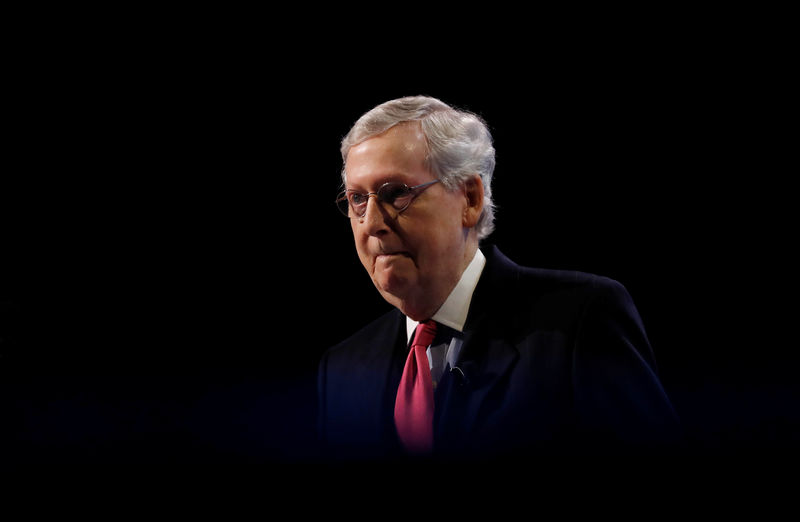By Amanda Becker and Richard Cowan
WASHINGTON (Reuters) - The Republican-led U.S. Senate on Wednesday changed its procedures to speed up the confirmation of President Donald Trump's nominees for some lower court judgeships and sub-Cabinet level positions.
The move to shorten debate on such nominees from 30 hours to two hours was resisted by Democrats but they could not block it because Republicans hold 53 seats in the 100-seat chamber.
Senator Mitch McConnell used his powers as majority leader to make the change, which will set a precedent that will apply to district court judges, the lowest rung of the judiciary, but not vacancies in the Supreme Court and federal appeals courts.
The Senate has historically provided greater protection for whichever party is in the minority than the 435-seat House of Representatives by allowing longer debating time before votes and requiring 60 yes votes for most approvals.
Those conventions have been whittled away by both Democrats and Republicans in recent years as the mood in Washington has become more and more polarized, however, with each party accusing the other of misusing the rules.
Reducing the time for debate will "begin to unwind this partisan paralysis, for the good of the Senate," McConnell said on Wednesday.
Democrats slammed the procedural change.
"At a time when leader McConnell brags about confirming more judges than anyone has done in a very long time, he feels the need to invoke the terribly destructive and disproportionate procedure," Democratic leader Chuck Schumer said on the Senate floor.
Fifty-three district court nominees have been confirmed during Trump's first two years in office against 44 confirmed at the same point in the presidency of Democratic President Barack Obama.
During Obama's presidency, Senate Democrats took steps to more easily win approval of his nominations by requiring only a simple-majority vote for administration posts and judges other than Supreme Court nominees. They also limited debate to two hours, but that move expired at the end of that Congress after Democrats lost control of the Senate in the 2014 elections.
In 2017, McConnell expanded the simple majority procedure to include Supreme Court confirmations in order to overcome Democratic opposition to Trump's first nominee, Neil Gorsuch.
The fight over the confirmation of federal judges has been raging for years, as divisive issues before the courts include hot-button issues like abortion, the death penalty and money in politics. Republicans are hoping that they can confirm as many of Trump's conservative picks as possible while they control the Senate and White House.
Democrats were enraged in 2016 when McConnell refused to hold confirmation hearings or a vote on Merrick Garland, Obama's pick to replace the late Antonin Scalia on the Supreme Court.
At the time, McConnell said that choice should be made by whoever won the November 2016 presidential election.
Since he became president in January 2017, Trump has won confirmation of 37 appeals court judges, compared to 55 appeals court judge confirmations during Obama's entire eight years. Such confirmation votes would not be subject to Wednesday's procedural change.

(Click here to see a graphic showing Trump's appeals court appointments: https://tmsnrt.rs/2Vxf9tL https://tmsnrt.rs/2Vxf9tL))